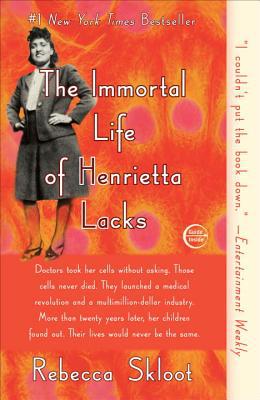The Immortal Life of Henrietta Lacks

In the 1950s, Henrietta Lacks was a poor black woman in her thirties who died of cancer. Doctors at Johns Hopkins University, where she was treated, took some of her unique cells without permission and used them for research. Those cells then became the basis for important medical advances, and they are still sold today for medical research—yet Lacks’s family has never received any compensation. Heavy on science, but interesting to all readers because of the human element, Rebecca Skloot follows the path of the cells, the research, and Lacks’s family, while discussing important questions of ethics and morality in science and medicine.
This post may include affiliate links. That means if you click and make a purchase, I may earn a small commission. Please see Disclosures for more information.
From the publisher’s description:
Her name was Henrietta Lacks, but scientists know her as HeLa. She was a poor black tobacco farmer whose cells–taken without her knowledge in 1951–became one of the most important tools in medicine, vital for developing the polio vaccine, cloning, gene mapping, and more. Henrietta’s cells have been bought and sold by the billions, yet she remains virtually unknown, and her family can’t afford health insurance. This phenomenal New York Times bestseller tells a riveting story of the collision between ethics, race, and medicine; of scientific discovery and faith healing; and of a daughter consumed with questions about the mother she never knew.

